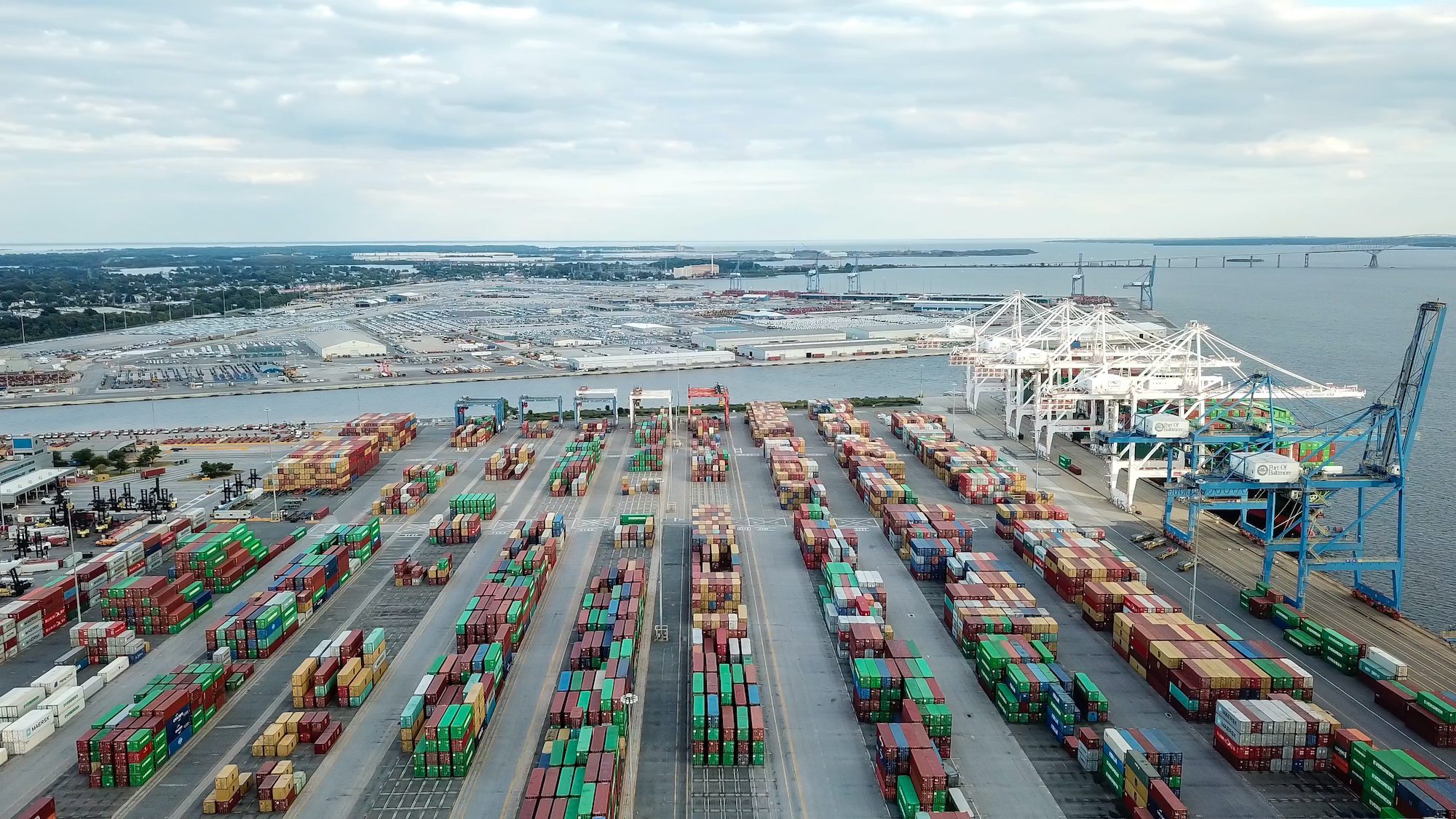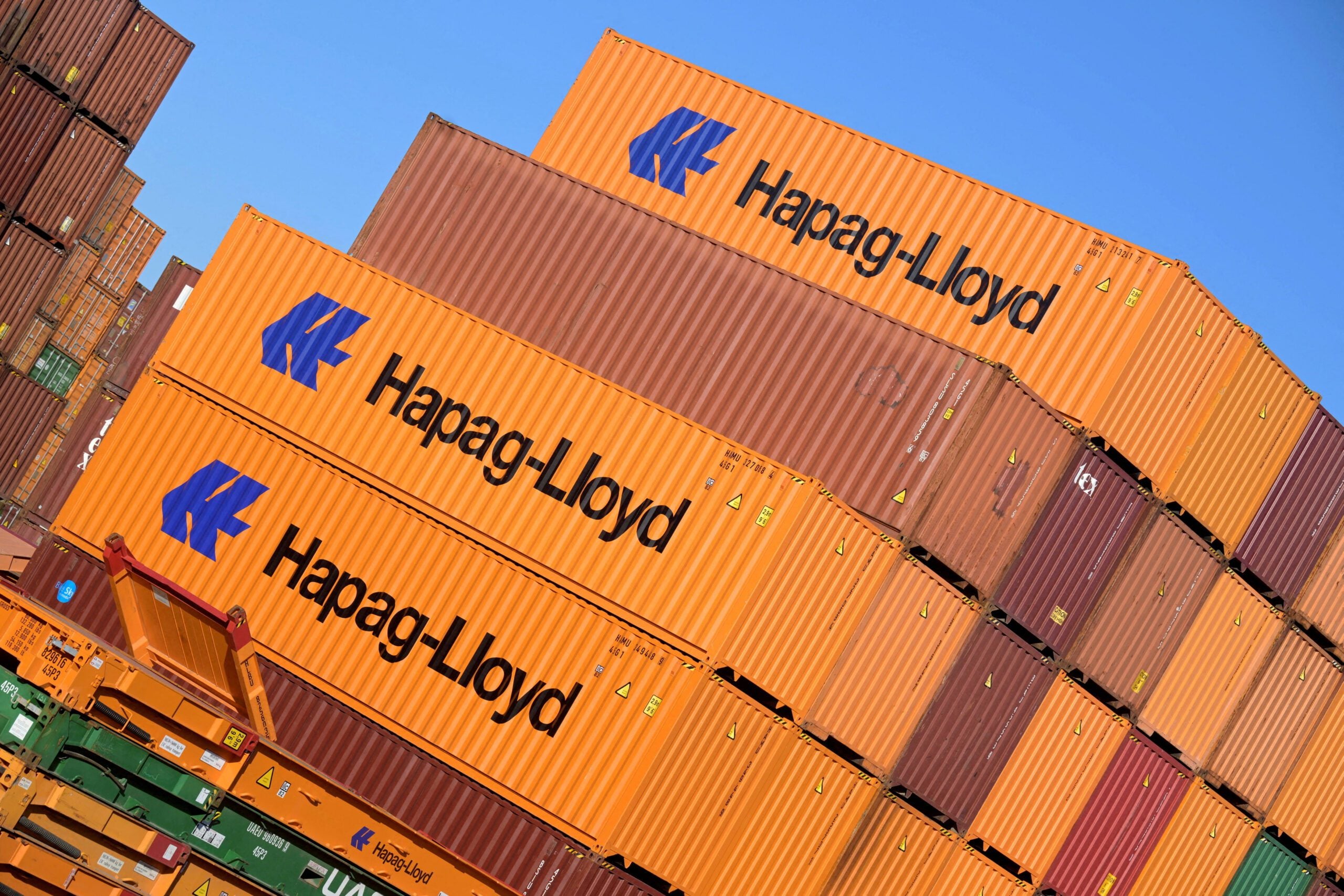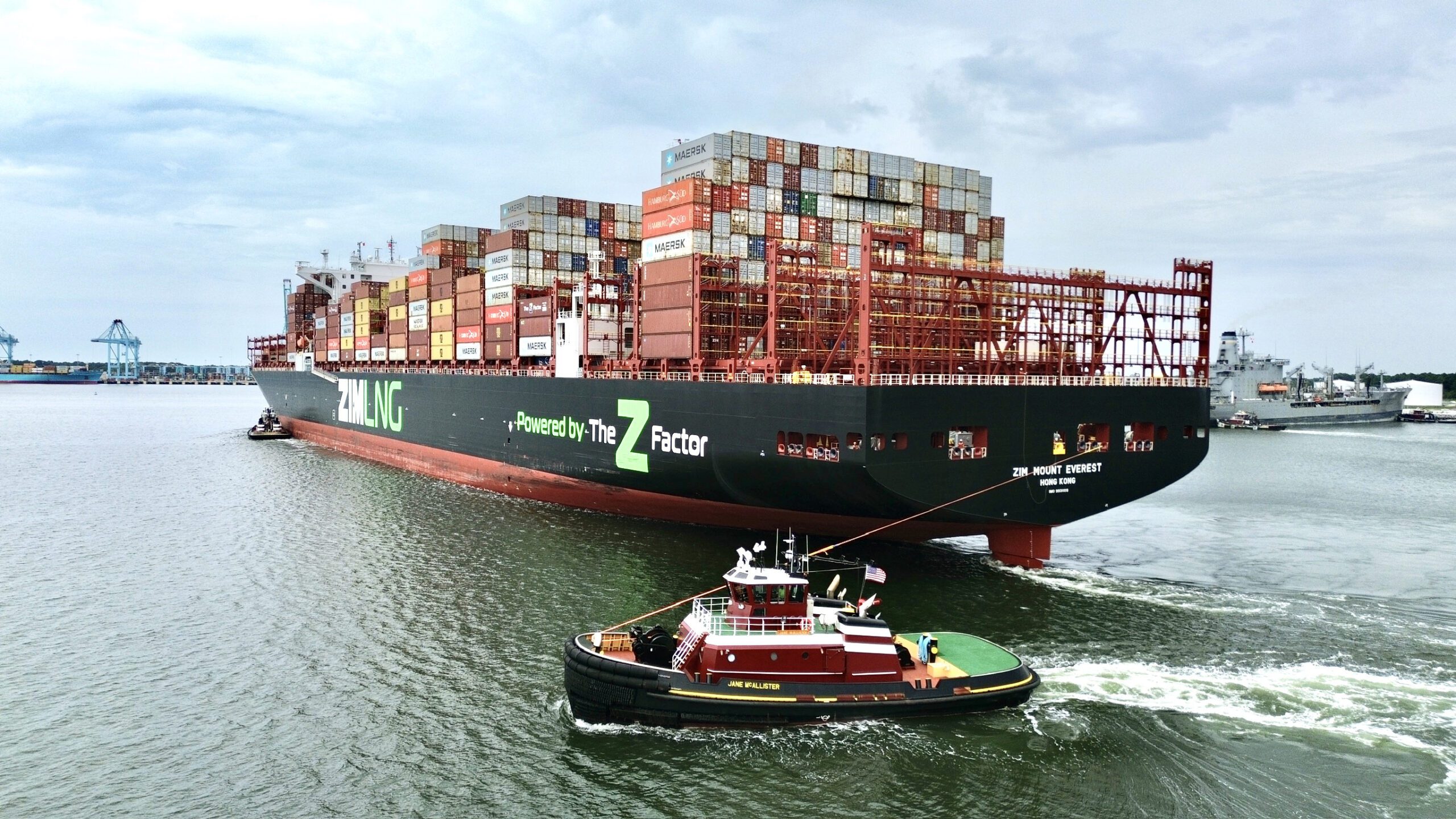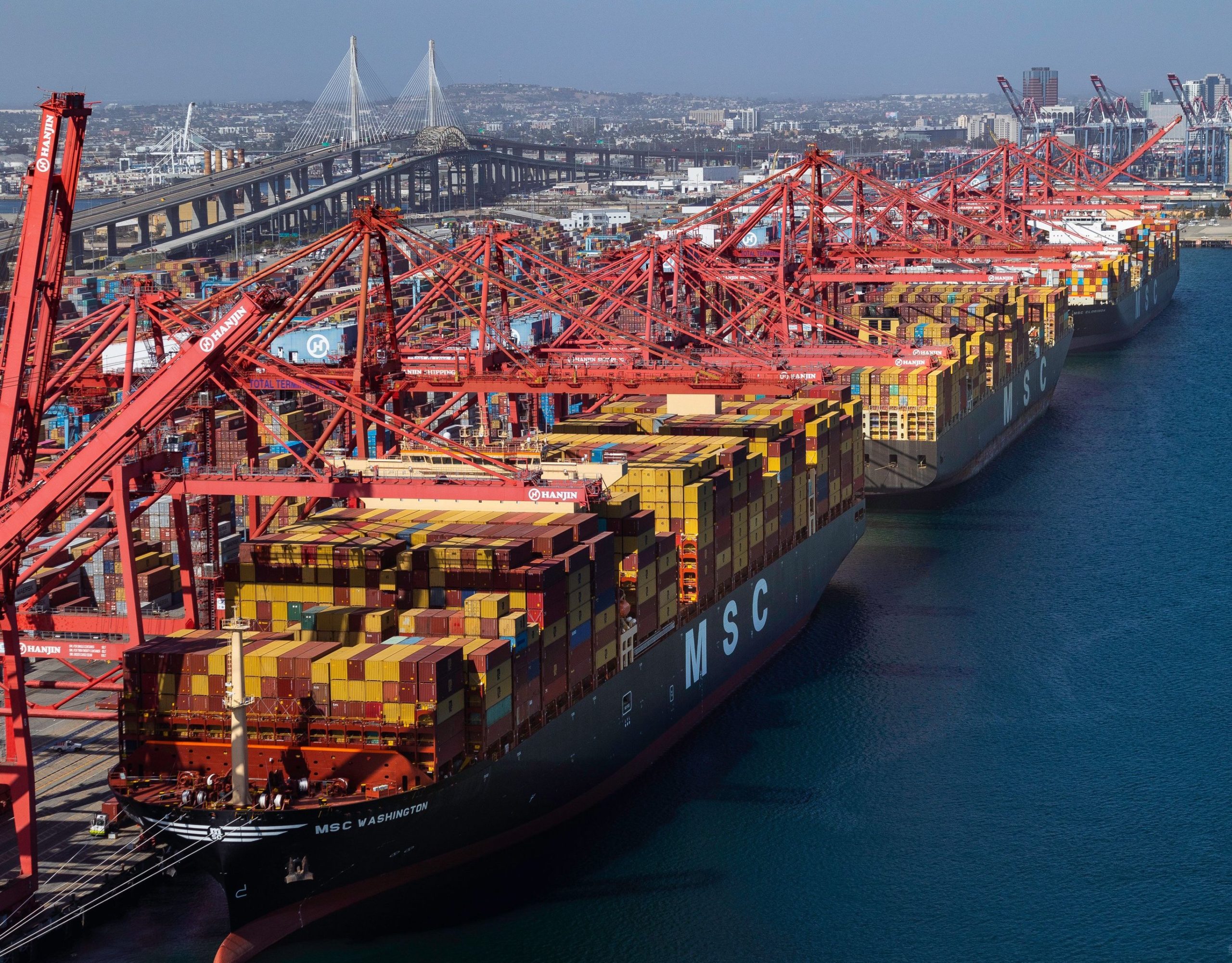By Gavin van Marle (The Loadstar) –
MSC, Maersk and Zim are the three carriers most exposed to the supply chain disruption stemming from the collapsed bridge at Baltimore, according to analysis from S&P Global Market Intelligence.
It shows that the three carriers collectively represent nearly three-quarters of Baltimore’s container import traffic: in the 12 months to the end of February, MSC accounted for 31.5%, with 145,734 teu; Maersk, 21.8%, with 100,800 teu; and Zim 19.8%.
According to the eeSea liner database, the 2M partners called at Baltimore on the TP12/Empire Asia-US east coast service, on which the Dali was deployed, and the transatlantic TA2/NEUATL2 and TA5/MEDUSEC services. Maersk also called there on its standalone Amex service between the US and South Africa, while MSC deployed two standalone services – the intra-Americas USA-SAEC and transatlantic Turkey/Greece-USA services – into the port.
Zim charters slots on the TP12/Empire service and features a Baltimore call on its ZXB standalone service.
“Container lines are rerouting their services, including Maersk and MSC, which accounted for 53% of imports to Baltimore and are also major users of Philadelphia, Norfolk and Newark,” said Chris Rogers, head of supply chain research at S&P Global Market Intelligence.
“While the peak season from July onward may prove more challenging, seasonal goods only represented 6% of Baltimore’s imports,” he added.
S&P said the share of seasonal goods such as as toys and leisure goods, consumer electronics and apparel is lower at Baltimore than other regional ports, which may limit disruption during the third-quarter peak season, if access to the port continues to be challenging.
These three product groups accounted for just 6.3% of Baltimore’s imports, according to S&P data, compared with 21.2% for Norfolk and 15.4% for New York, while Philadelphia is much less “seasonal”, with just 2.1%.
However, shippers to the US east coast are preparing for delays to their shipments, even if they don’t currently import through Baltimore. Andres Ferro, CFO at Colombian bedding fabric manufacturer Cannon Industries, told The Loadstar he expected the incident to create a “ripple effect” beyond Baltimore itself.
“In the short-term, there’s going to be congestion in the other east coast ports because of cargo being rerouted from Baltimore, and I expect that to cause delays with shipments to our customers, and that will have a commercial impact.
“It could also happen that rates go up, because they always seem to when incidents like this happen, even though they were going down before this; while over the longer term, insurance premiums will also go up because the overall damage from the incident is going to be a pretty big number, and the insurers will need to recoup that,” he said.
The real fear is for the finished vehicle supply chain, despite the fact that one of Baltimore’s car terminals is still accessible to deepsea car carriers.
Mr Rodgers said: “Automotive supply chains may face more of a challenge, with only the Sparrows Point terminal remaining open and expected to handle 10,000 vehicles in the next two weeks, compared with normal total monthly imports for Baltimore of 60,000 to 70,000 vehicles.
“Most of the major users of Baltimore use alternative ports much further south – Mercedes Benz and Stellantis in Georgia – or north – General Motors and Ford – in Newark,” he added.
(c) Copyright Thomson Reuters 2024.
Editorial Standards · Corrections · About gCaptain

 Join The Club
Join The Club











